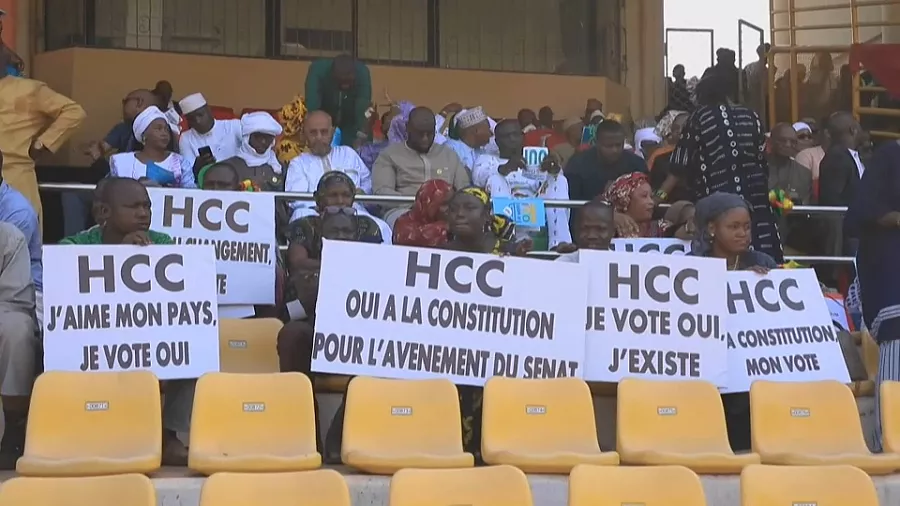Malians have voted on whether to back a new constitution in a first electoral test for the ruling junta but fears of jihadist attacks and political disagreements prevented voting in some areas.
The West African nation has been governed by the military since a coup in August 2020, but Colonel Assimi Goita, a 40-year-old strongman leader, has sworn to restore civilian authority in 2024.
There are 8.4 million eligible voters in the referendum on the new text, which has fueled rumors that Goita will run for office.
Voters went to voting places in the capital, Bamako, and he was among the first to cast his ballot.
“Today is a historic day. This vote will change many things… That’s why I voted ‘yes’, for a new Mali,” said civil servant Boulan Barro.
Africa Today News, New York reports that the danger of jihadist attacks looms over central and northern regions, meaning the vote is not being held in some parts of the country, including the town of Kidal, a stronghold of former rebels.
Despite concerns, no major incident was reported.
A team of observers from civil society groups backed by the European Union reported that there were only a small number of voting issues in the polling stations to which they were deployed.
Read Also: Suspected Jihadists Murder 33 Burkina Faso Troops
In Menaka, a northern region contending with rebels linked to the Islamic State group, voting was limited to its capital due to insecurity, local elected officials said.
Turnout — typically low in the country of 21 million — will be seen as an indicator of the junta’s ability to restore stability and generate popular enthusiasm for its agenda.
The junta has advertised the new constitution as the answer to Mali’s inability to tackle its multiple crises.
Mali’s recent woes began in 2012, when separatist insurgents in the north — long seen as marginalised by the southern government — aligned with Al-Qaeda-linked Islamists to seize vast swathes of territory.
Former colonial power France stepped in and helped push back the Islamists, but attacks have continued, and Bamako has since broken its alliance with Paris in favour of Russia.
Disputed parliamentary elections in March 2020, followed by mass protests against a government unable to rein in the insurgency, corruption and economic crisis, ended in a coup.
Goita initially appointed an interim president but kicked him out in a second coup in 2021 and stepped into the top job himself.
Now doubts are swirling over his commitment to step down after elections planned for next year.
The junta called on Friday for the immediate departure of the country’s UN peacekeeping mission, a central and controversial actor in a security crisis that has claimed the lives of nearly 200 peacekeepers in the last decade.
The new constitution will strengthen the role of the president, who will have the right to hire and fire the prime minister and cabinet members.
The government will answer to the president, and not parliament as the current 1992 document states.
It will also give an amnesty to those behind prior coups, reform the regulation of public finances and force MPs and senators to declare their wealth in a bid to clamp down on corruption.
